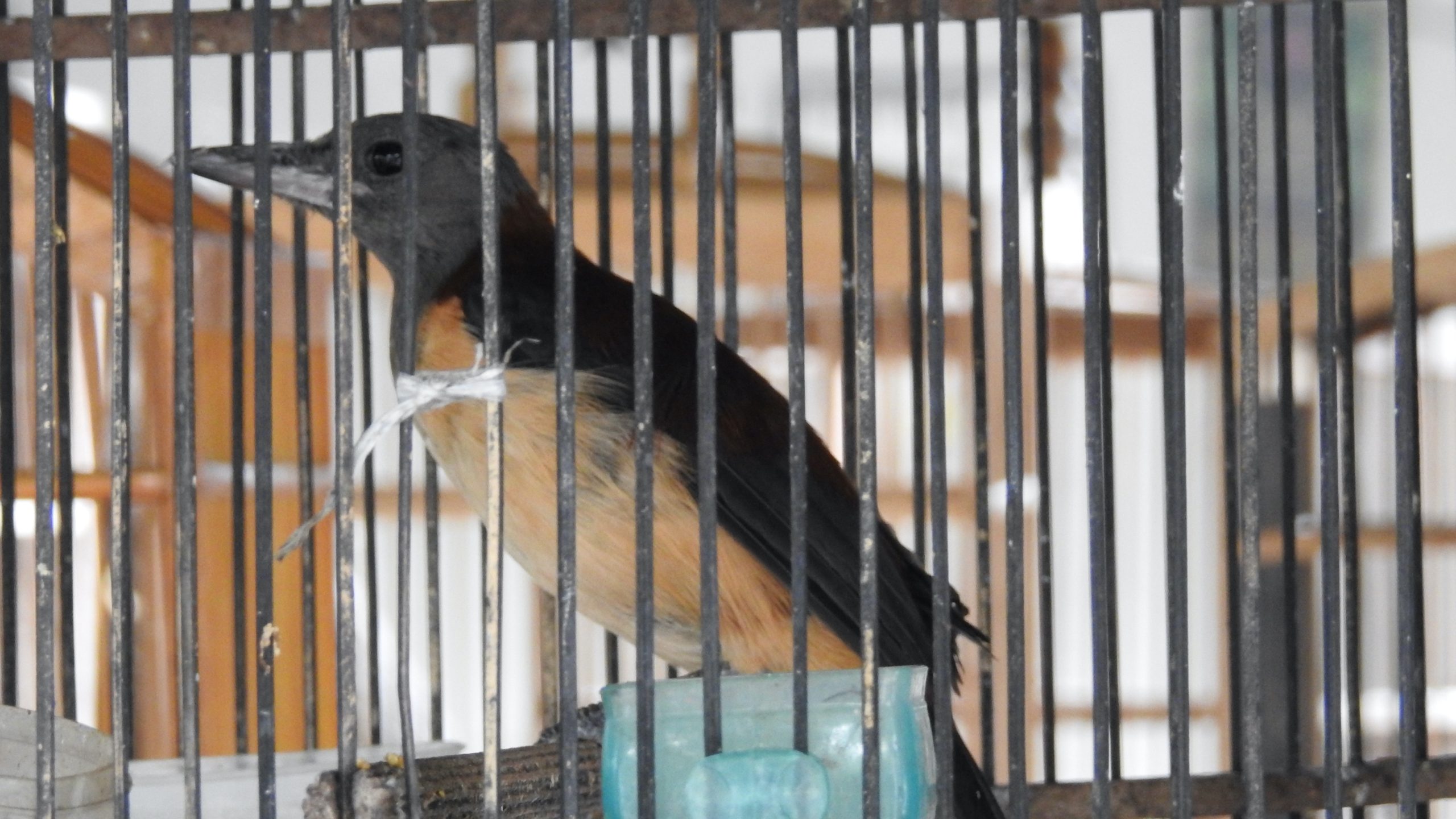Poisonous pitohuis as pets
The culture of songbird-keeping in Indonesia is enshrined in tradition. The archipelago is dotted with bird markets that offer an array of common unprotected species for enthusiasts – but also rare, and protected species. Songbirds such as the Green Magpie and Straw-headed Bulbul, for instance, have been over-exploited for their plumage and song and when their numbers are so low, bird traders resort to alternatives.
Our new study, spanning nearly 30 years and over 800 market surveys across Indonesia reveals a surprising trend: we documented 113 poisonous pitohuis in physical markets and nearly 200 online since 2015, yet these little-known songbirds were completely absent from markets in the two preceding decades.
Pitohuis are poisonous birds that release a toxin when handled. While not fatal to people, the toxin causes sneezing with numbness and burning of nasal tissue and nausea. This ‘danger factor’ somehow means added allure to bird enthusiasts.

Northern Variable Pitohui © Simon Bruslund | Silent Forest
We are highly concerned with the rise of a poisonous bird being traded and kept as a novelty pet in Indonesia without any consideration being given to any adverse effects of its poison, or on the conservation status of this unique group of species.
“This study highlights the extent of the songbird trade in Indonesia, once again, where we see an ever-increasing number of species offered for sale despite the presence of regulations that are designed to prevent the harvest of wild birds,” says lead author Prof. Vincent Nijman, who leads the Oxford Wildlife Trade Research Group in the UK, and has worked extensively on wildlife trade in Southeast Asia.
The study also illuminates the role that social media and e-commerce platforms continue to play in facilitating illegal wildlife trade online despite having their respective terms and conditions that birds such as pitohuis should not be offered for sale.
“These platforms are self-policing their policies and clearly in the case of pitohuis and other wild songbirds this system is ineffective is not working in Indonesia,” adds Dr. Chris R. Shepherd, study co-author and Monitor Executive Director, “and perhaps it is time that governments intervene, thus allowing them to enforce their own rules and regulations.”
Indonesia has a heavy responsibility in protecting its biodiversity, and it is hoped that studies such as this are useful. Early detection of trade in novelty species allows for the authorities to intervene in a timely manner – before it is too late.
Poisonous pitohuis as pets was published in Bird Conservation International
Share this article:

How you can help
Please consider making a donation to support this crucial work for wildlife.

